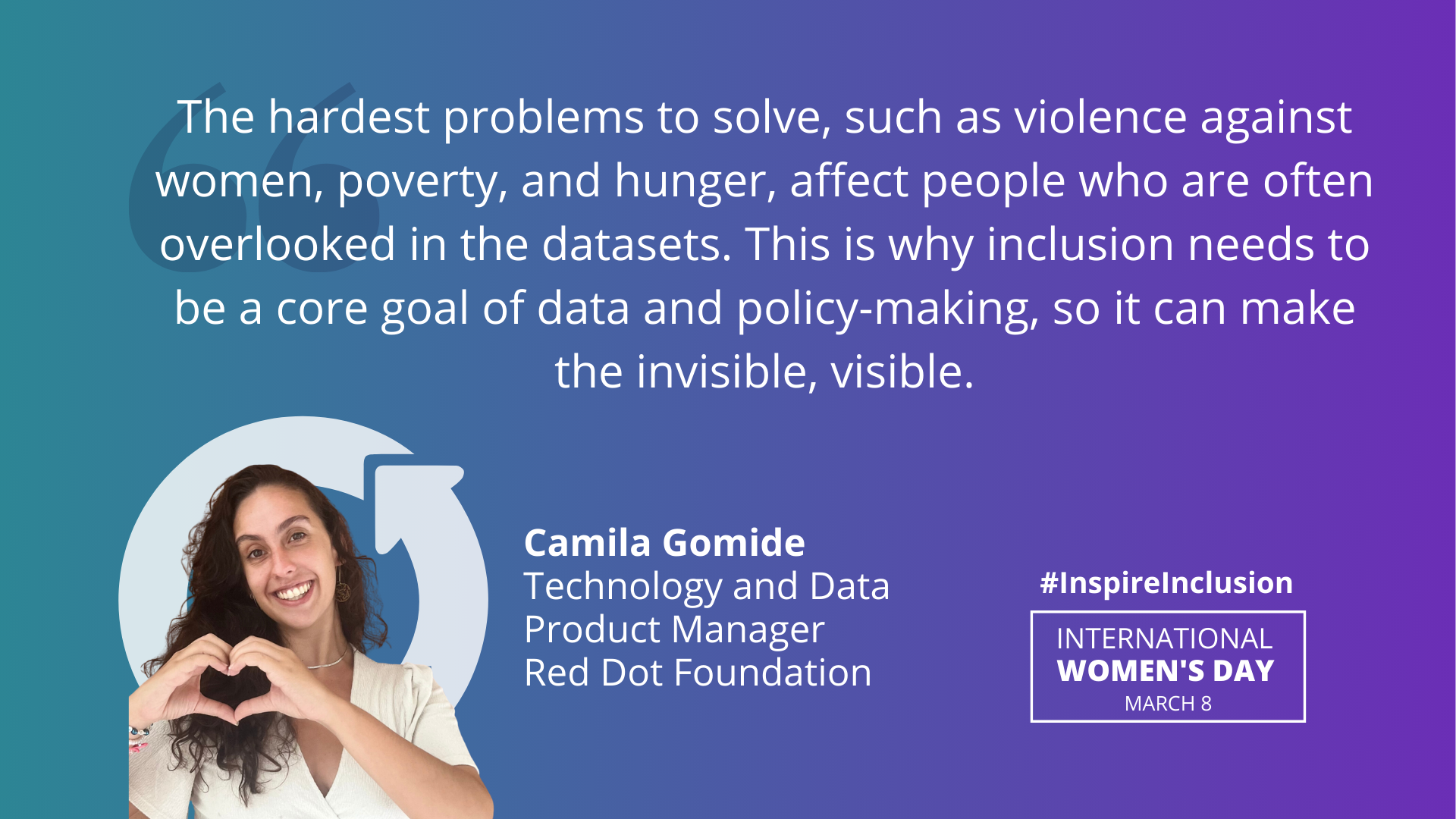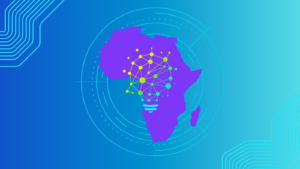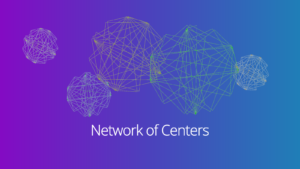On the occasion of International Women’s Day and its 2024 theme #InspireInclusion, the Datasphere Initiative spoke to four inspiring women working on different aspects of data governance to ask them why inspiring inclusion is important in policy and technical approaches to unlocking the value of data, and the actions they are taking to ensure inclusion in how data is used, managed and governed.
Camila Gomide, Technology and Data Product Manager, Red Dot Foundation shared her perspectives and identified specific actions that can be taken.
Read more about the campaign and other contributions here.
It is undeniable that data should be at the core of any decision-making process, and throughout the years policy-makers have used data-driven insights to promote better and more effective policies.
At its core, data makes the problem impossible to ignore, whether that is at a local or global level. However, in many cases, this data can be biased and only show insights from a specific group of people.
At the same time, the hardest of problems to solve, such as violence against women, poverty, and hunger, affect people who are often overlooked in the datasets. This is why inclusion needs to be a core goal of data and policy-making so that it can make the invisible, visible. When underrepresented groups are counted in datasets, truly sustainable and actionable policy-making can be made.
In the G20 agenda, a lot is mentioned on meaningful digital connectivity, and the importance of access to technology. However, it is impossible to talk about meaningful connectivity without exploring the different groups that have digital access. In the past two years, there has been a growth in male access to the Internet of nearly 3%, while the increase for women was only 0.5%. Besides access to technology and information, within the digital ecosystem, according to the Safecity Database, women are six times more likely to face online violence, such as stalking, sexual invites and comments, and being susceptible to illicit content. In other words, to ensure meaningful digital connectivity, putting women in the center of action is crucial to ensure a safer, and more meaningful access to digital content.
Safecity is a crowd-mapping platform designed to collect anonymous reports about sexual and gender-based harassment and abuse. These reports are aggregated and visualized on a map, providing valuable data for individuals, communities, and policymakers. In one of these crowd-mapping efforts, in Brazil, a surge in reports from a specific area exposed a grave issue: human trafficking. However, through our data-driven approach, we were able to provide concrete action. By collaborating with local authorities, we presented the data and proposed immediate measures, which ensured the safety not only of that area but also influenced policies for the broader town. This experience materialized the transformative potential of data, validating its role as a catalyst for impactful and strategic solutions.
Watch this video of Camila Gomide at the T20 side event talking about how to address gender inequalities using data.
Camila Gomide is the Tech and Data Product Manager and advocate for gender equality and social impact. She has a bachelor’s degree in Global Studies degree with minors in Gender Studies, International Relations, and Entrepreneurship from Long Island University.
At Red Dot Foundation Global (RDFG), she leads strategic initiatives to combat gender-based violence (GBV) across 20 countries through crowdsourced data. In her role, she utilizes data-driven insights to promote safer cities through the implementation of the Safecity app. She is currently spearheading research in Brazil to understand the intersection of climate change and gender-based violence across Brazil. Furthermore, she is a One Young World Ambassador and member of the Youthful Cities Advisory Group, where she actively collaborates with like-minded individuals, fostering global partnerships for positive change.




